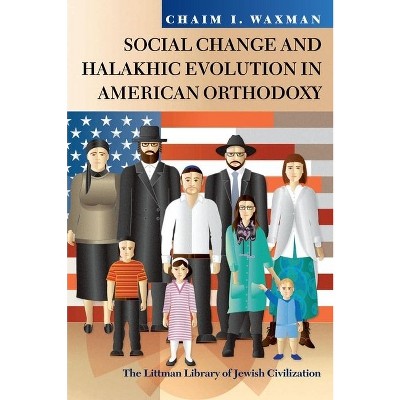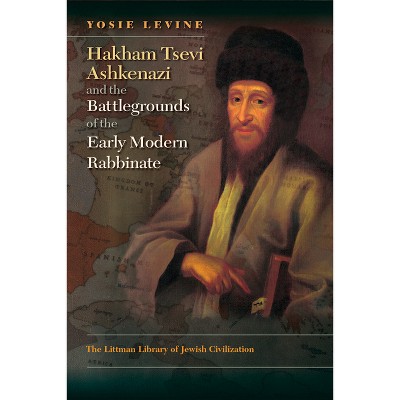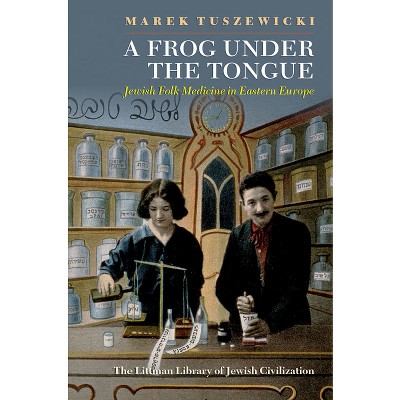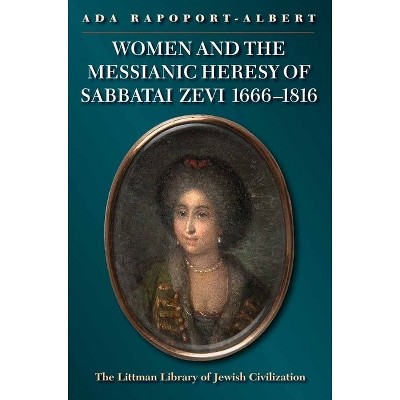Torah from Heaven - (Littman Library of Jewish Civilization) by Norman Solomon (Paperback)

About this item
Highlights
- Traditional Jewish religious belief speaks of a divinely revealed, perfect text, authoritatively expounded.
- Author(s): Norman Solomon
- 412 Pages
- Religion + Beliefs, Judaism
- Series Name: Littman Library of Jewish Civilization
Description
About the Book
An intriguing consideration of the validity of traditional notions of divine revelation and authoritative interpretation in today's world.Book Synopsis
Traditional Jewish religious belief speaks of a divinely revealed, perfect text, authoritatively expounded. The question this book addresses is one with which the author has struggled all his life: in the light of historical criticism, advances in knowledge, and changing moral attitudes, is the traditional notion of divine revelation and authoritative interpretation still valid? The focus is on Judaism and the examples are mostly drawn from that tradition, but the arguments are easy to transpose to other religions. Norman Solomon's discussion will appeal to those who seek to identify with a religious community but who are troubled by the claim of divine authority made for the scriptures of that community. Ranging across several academic disciplines, it is addressed to people of all religions who find their heads and their hearts are not in accord with each other. It is accessible to a general readership interested in the relationship of scripture, interpretation, and religious authority, though scholars will find original observations and historical interpretations in many areas.
It should find a ready place in university and popular programmes in Jewish studies, general theology, and philosophy of religion.
Review Quotes
'A courageous new book . . . has an impressive range, from scholarship about biblical times to twenty-first century theology and almost all periods in between . . . despite all the detail in the book, it is very readable and comprehensible even for the beginner. It should be required reading for any modern woman or man who thinks seriously about Jewish theology in general and the question of Torah from heaven in particular.'
Martin Lockshin, Canadian Jewish News
'A scholarly book, it is not written in a difficult style. And for a hardback of this print quality, it is a bargain. On one level, it is an invaluable source book on what he calls the "central doctrine" of Judaism.' Simon Rocker, Jewish Chronicle
'An excellent resource for researching Jewish intellectual discussion about the Bible.'
Zvi Grumet, Bookjed
'An important book for anyone grappling with traditional Judaism . . . stands with Marc Shapiro's The Limits of Orthodox Theology as a seminal work that delves into the richness of our heritage to show that there is more than one way of looking at core religious ideas . . . This book gives us a history of the issues and how different thinkers over the centuries have dealt with the challenges of the Torah. It is a major contribution.'
Jeremy Rosen's blog
'In this refreshingly fair, sophisticated, and engaging analysis of the doctrine of Torah from Heaven (the Jewish belief in the inerrancy and divinity of scripture), Solomon surveys the history of Jewish biblical interpretation, and concludes that every prior conception of this doctrine is lacking in either intellectual honesty or in its capacity to foster religious conviction. [He] concludes that the only religiously meaningful and intellectually coherent conception of this notion is that of myth . . . can be read by members of any religion whose faith in scripture is challenged by modern archaeological, literary, and scientific evidence . . . The book is sorely needed in Orthodox circles; it should be required reading for all Jewish seminary students, and is highly recommended for any religious individual seeking to establish intellectually stable grounds for belief in the sanctity of scripture.'
Daniel Goodman, Religious Studies Review
'Judicious and erudite.'
Lawrence Grossman, Jerusalem Post
Reviews
'Solomon intends that his book appeal to both popular and academic readership, a task he rather successfully fulfils. His literary style is characterized by the art of brevity . . . Footnotes are concise and not burdened with endless bibliographic citations. For the interested reader, references throughout the book lead to further reading . . . Theologians will benefit from a plentitude of thought-provoking critique and insight. It is for these reasons that I recommend the book . . . interesting and successful in giving a broad historical perspective as well as provoking thought.'
Dan Baras, Academia.edu











